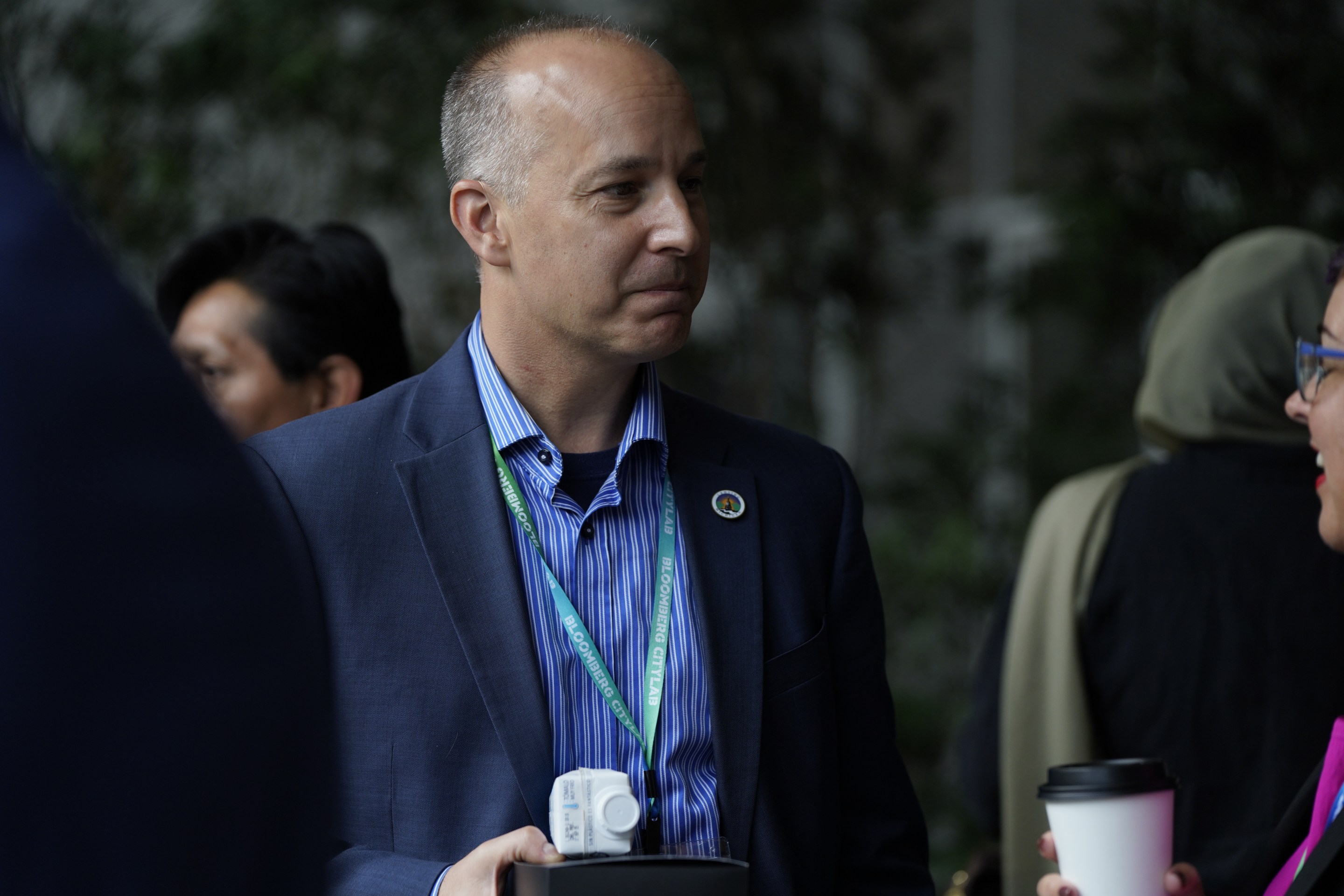Highways and other federal transportation investments have destroyed neighborhoods of color across America, even as the current presidential administration attempts to heal those wounds through grants like the Reconnecting Communities Program. But what is it like to actually be a local leader fighting to win that money — especially when the sheer volume of disconnected communities makes the competition dauntingly steep?
On this episode of The Brake —and our first dispatch from the Bloomberg CityLab 2024 conference — we sat down with Lansing Mayor Andy Schor, who's going above and beyond to win his town the money it needs to address the harms caused by Interstate 496, whose construction claimed more than 800 homes and businessess and even the dirt on which they sat. And along the way, we talk about how local officials and advocates can play a bigger role in resisting bad highway projects, and how mayors are exchanging tools to help in the fight.
Listen in, and read interviews with three other small-city mayors who are getting into the federal grant game with the help of experts at the Local Infrastructure Hub, a national program established by Bloomberg Philanthropies and a consortium of leading nonprofits and technical partners.
The following excerpt has been edited for clarity and length.
Streetsblog: For folks who aren't familiar with Lansing, why don't you just tell me a little bit about your city, and also about this project that you're hoping to heal a divide in your place.
Schor: [Lansing is] a very proud city. We're a legacy city; we have an incredible diversity. We have very strong manufacturing, and lots of folks came to Lansing when cars were hot. We have two assembly plants. You may have heard of, you know R.E. Olds and Oldsmobile; R.E. Olds was from Lansing. He's actually buried right down the street from my house in the cemetery there.
So we're a proud manufacturing town, blue collar. We make cars, and we also have lots of other things. We happen to be the state capital. We have incredible health care industry. But we really are an incredibly diverse city, and I'm proud of that, [and] of all that we do for everybody in our city, regardless of race, color, sexual orientation.
But when you look back, some of that history is not so proud. In the 1950s, we had a very thriving African-American neighborhood right in the middle of our city. And the federal government decided they were going to come in and wipe out that whole area to create Interstate 496.
We know this now because we started a project about eight years ago called Pave the Way, where we started [collecting] stories. It wasn't like it was a poor community; this was a middle-income, African-American community. We have pictures of grocery stores and salons and housing, just beautiful areas and [people who took] a lot of pride in the area. And the federal government came in and said, "You're moving." They gave them money, but they moved them.
So when we saw the Reconnecting Communities, program, we literally thought that this was put in the law for us. This is something that we've been talking about this in Lansing for years now. And then I came to U.S. Conference of Mayors, and I met mayors from Syracuse and mayors from all over the country, and they all thought it was written for them.
Streetsblog: What role should mayors play in resisting the kind of projects that now we're trying to heal? I'm sure that Michigan is not unlike the state where I live, Missouri, where they are still actively building highways, they are still actively widening roads, they are still doing it in communities that are being harmed in real time. What's the role of a local leader in making sure that we don't have these messes to clean up in the future?
Schor: Our role is to yell and scream and advocate. When these things are done, we have to stand up and say, "No, that's wrong." We're not always going to win, but using the bully pulpit, getting our local legislators to try and change things at a state level, getting our federal legislators to try and change things at a federal level [is so important].
[As mayors], we're on the ground. We're the ones who go to Walgreens and Meijer; when I'm picking out the fruit that I'm going to bring home for my wife, I have to hear from the resident about the their streets or public safety or snow plowing. We're the ones who hear these things.
We have to share it with the world. We have to share it in your in your blog. We have to share it on the news. We have to bring these issues to light.
In some states, they don't care. In some states they do. I've lived through both. I served in the minority in the legislature, and I've been mayor for seven years now, and I've seen both. I've seen folks who care and folks who don't, but it's still our job to amplify the voices that we're hearing in our communities.






